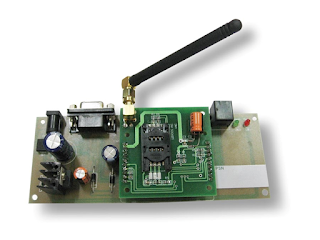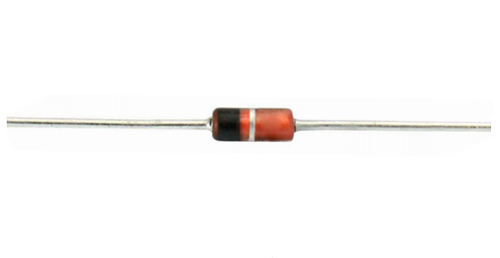SMART MAINTANENCE OF ELECTRICAL MACHINES
ABSTRACT
Maintenance of the electrical machines is one of the most
important aspects in the power sector. As the technology is growing
correspondingly the demand for the power is also growing which results in the
increased number of generating stations, distribution stations etc...
Conventional methods of protection and maintenance are not
certain, moreover they takes long operating time. If faults are undetected, it
can lead to overheating along with catastrophic electrical failure. These
events typically require extensive repairs with an extended shutdown of the
machine. It is highly desirable to detect such faults at an early or incipient
stage so that remedial action can be taken before a complete failure occurs. With the advancement in the power electronic, embedded controllers
and sensor technology there is tremendous revolution in the field of electrical
maintenance. This paper brings to fore the various methods of electric machine
maintenance and various ways of protection of machines against overloads and
fault condition in a smart way.
Introduction
The maintenance of the electric machine is of top most priority in
the electrical power sector. The electrical power sector can be broadly
classified into generation & transmission sector and distribution sector.
The large machines used in the generation sector are “alternators”,
transformers and various kinds of induction motors are in many of the
industries. If these machines are not properly monitored it may lead to the
poor performance of the machines which is highly undesirable. Electrical
machines are used in every industry in one or the other way like “Boilers” ,
“air handlers” , “pumps” , and “cooling towers” etc…
The care taken to ensure
the proper working of these of the electrical machine is referred as “Electrical
Machine Maintenance”. our main objective in this paper is bring out smart
maintenance technique for electrical machineries which reduces the errors and
maximize the performance of the machine. We are introducing an automatic fault
detection and semi-automatic fault correction system. This system uses GSM
technology for intimating the faulty condition to the operator via SMS. By
adopting this system we can achieve better maintenance and best productivity.
Large electrical machine
Electrical machines are majorly classified as follows:
The large electrical machines which are used in the power
generation sector and industrial sector are alternator and induction motors.
Large Alternators
Turbo –
generator of 250 MVA
Need for maintenance:
The care and precautions what we take in order to make sure the
optimal working of the machine is basically refer as maintenance.
In the electrical machines the major faults are:
- Overheating of machine winding.
- Large vibration of the machine.
- Misalignment of shafts.
- Storage of large machines.
For the better operation of the electrical machine, we need to
reduce these faults to a maximum extent which will improve the performance of
the machine. Optimally maintenance of electrical machines will reduces the
losses and hence the over process of production will be economical.
Types of maintenance:
Pre- operative maintenance:
This type of maintenance is done when the machine is brought the
customer site. Some of the activities of pre-operative maintenance are:
- Visual inspection.
- Cleaning and blowing dry air.
- Checking air gap, bearing.
- Measurement of insulation resistance.
Preventive maintenance or operative maintenance:
This type of maintenance is done when the machine is operating
condition. Some of the activities of preventive maintenance are:
- Maintenance of cooling system.
- Measuring vibrations.
- Misalignment of the shafts.
- Checking for the unbalance voltage.
- Maintenance of cooling system:
Overheating of the electrical machine windings is one of the
serious issue in maintenance. the various causes for the generation of heat in
the windings are:
- Over loading the machine.
- Short circuit.
- Running the machine for the long time.
Cooling system can be broadly classified into two categories
a) Natural cooling. b)
Forced cooling.
Usually for the large machines the cooling system preferred is “forced
cooling” which consist of the air cooling or water cooling or any liquid as
coolant medium, which will be passed
through the cooling ducts manually whenever necessary.
i. 2. Measuring of
vibrations:
Whenever the machine is installed on the working site it should be
properly bolted to minimize the vibrations. Usually due to aging or some wear
and tear the nuts and bolts of the machine may become loose which may lead to
huge vibration and cause inconvenience sometime it may also cause disaster. In the preventive maintenance schedule
vibration check is done half yearly once.
3. Checking the unbalance
voltage:
Almost all large electric
machines are polyphase machines, when there is unbalance voltage or single
phase operation of polyphase machine may cause excessive overheating. It
requires only a slight unbalance voltage applied to polyphase machine to cause
large unbalance currents and results in overheating and ultimately failure of
the machine. In such case the power supply should be checked and corrected even
if there is slight unbalance is found.
Smart maintenance of
electrical machines:
In the previous section we
have seen the different maintenance schedule and their operations. We are
introducing a semi-automated maintenance system. This uses the following
components and equipment:
- Sensors.
- Embedded controllers.
- GSM module.
- Unbalance detection circuit.
Sensors:
The sensors which are used
in this system are:
1. Temperature sensor ( sensitive thermo-couple):
A thermocouple consists of two dissimilar conductors
in contact, which produces a voltage when heated. The size of the voltage is
dependent on the difference of temperature of the junction to other parts of
the circuit.
Highly sensitive Thermocouple
2. Vibration sensor:
The vibration sensor is an
electro-mechanical transducer works on principle of piezoelectric effect, which
converts the vibrational energy into corresponding electric voltage.
Embedded controller: (AT mega16
microcontroller)
Microcontrollers can sever as brain to electro-mechanical system.
It can be programmed interact with the hardware of the system and also with
user. The AT mega16 microcontrollers used here has 40 pin DIP package, Analog
to Digital converters, high speed timers and counters, and serial communication
ports etc… The pin out diagram of AT
mega16 is as shown below.
3. GSM modem:
GSM modem is a wireless
modem that works with the gsm wireless network. Sim 300 GSM modem is used for
this system which is designed with power saving technique. The sim300 is
integrated with the TCP/IP protocols, AT commands are developed to use these
protocols which are very helpful for data transfer.
GSM modem
Various AT
(attention) commands are:
·
AT+CMGW // write a message to memory.
·
AT+CMGS // send a message.
·
AT+CMSS // send a message from memory.
·
AT+CMGF =1 // set the message mode
to normal testing mode.
Unbalance detection circuit:
The transformer steps down
the 230v ac voltage to corresponding 5-0-5
v compatible with the TTL
circuits corresponding to each phase. These low power sinusoidal signals are
then half wave rectified to obtain only positive peak of cycle. Now in order to
convert sinusoidal to square pulses, analog comparator LM324 is used with the
negative threshold is set using 10k pot such that the output duty cycle is 33%
of each phase. The purpose of conversion of 33% duty cycle for each phase
because of the fact that each Phase in 3 phase supply differs with a phase
difference of 120º.
Balanced voltage supply:
The typical logic of XOR
gate is such that the output is logic high whenever the three inputs are
exactly 33% duty cycle indicating the high average value in turn means all
three phases are exactly differed by 120º.
Unbalanced voltage supply:
Considering the phase error
with overlapping and non-overlapping
pulses, the output will be a pulsed
waveform indicating the lesser average value. The principle behind obtaining
the pulsed waveform is that whenever any of the two inputs are logic high or
logic low at same instant, then output will be logic low. Thus the error in
phase is detected.
Block diagram:
Working principle:
The
block diagram of the smart maintenance system is as shown. The temperature
sensor is mounted on the machine outer body such that it form a part of the
machine winding and the vibration sensor is mounted on the foot of the machine
basement. All the output of the sensors is interfaced to the microcontroller.
The microcontroller is connected to the gsm module. When the machine is powered
up the unbalanced voltage detector circuit detects any unbalance in the voltage
or phase error. If any phase error exists then the microcontroller operates the
relay and disconnects the machine from the main supply. Whenever the
temperature raise of the machine windings is beyond the permissible limits then
the temperature sensor send a signal to the microcontroller, in turn the
microcontroller activates the cooling system available for the machine when the
machine attains the ambient temperature then the cooling system is
automatically deactivated. Due to any negative sequence or any mechanical
imbalance the vibration in the machine increased to a high value then a signal
is recorded at the microcontroller. The microcontroller buzzes an alarm and
intimates the operator.
All
the imbalance or fault conditions are automatically monitored and controlled.
With the help of the GSM modem the faulty condition is intimated to the
operator via an SMS and the operator has the flexibility to operate the
maintenance unit form the remote place.
Advantages:
·
The system modernizes the maintenance of
electrical machines.
·
Early detection of faults
·
Performances of the machine will be
improved.
·
Reliable.
Load
Specifications:
3phase,
415-440v, 8-11A, 50hz, 3.7kw, 1-5HP, 1440rpm
Limitations:
·
Initial cost of installation is quite
high.
Conclusion:
Maintenance
is very essential for any electrical machine. By adopting the automation will
yield in better result and the performance and efficiency of the machine is
improved. This system enables us to detect the fault at the earliest and hence
better protection and maintenance can be achieved.
















No comments:
Post a Comment